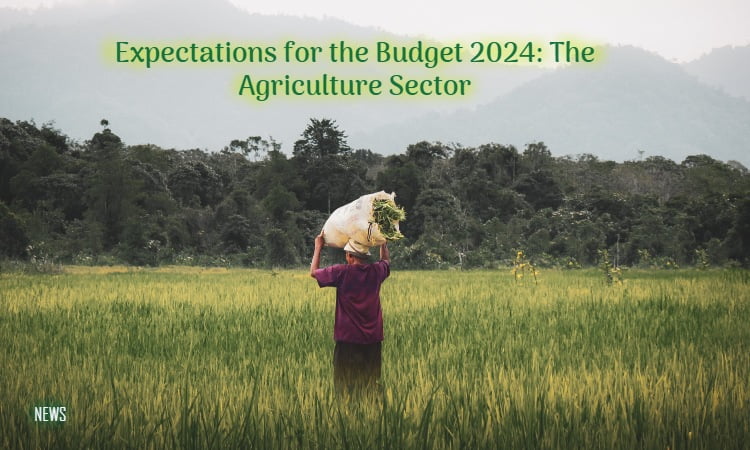The agriculture sector is expected to develop at a slower rate in 2023–2024, down from 4% in the previous year. As a result, the government is expected to push credit and greatly increase allocation for important farm sector projects in the interim Budget to support the rural economy. On February 1, Finance Minister Nirmala Sitharaman will introduce the interim budget, which is anticipated to be the last major economic document of the Narendra Modi-led administration prior to the 2024 Lok Sabha elections.
Ahead of the 2019 general elections, the government announced the PM-Kisan Samman Nidhi in the 2019 interim budget. Under this programme, small farmers can receive up to Rs 6,000 in financial aid each year. It is anticipated that the amount of aid in the next Budget will rise during election year.

Additionally, it is expected that the government would guarantee that all qualified farmers have access to institutional finance and will announce a significant increase in the agricultural loan target to Rs 22–25 lakh crore for the upcoming fiscal year. For the current fiscal year, the government plans to provide a total of twenty lakh rupees crore in agricredit.
- In order to promote inclusive growth in the interim budget, agriculture and rural areas should be given top emphasis, according to Director General of the industry association CII Chandrajit Banerjee.
- Sitharaman gave the Ministry of Agriculture and Farmers’ Welfare, which includes Agricultural Education and Research, Rs 1.25 lakh crore in the Union Budget for 2023–2024. The allocation for 2013–14 was multiplied from Rs 27,662.67 crore.
M K Dhanuka, the managing director of Dhanuka Agritech, anticipates that the government would maintain the agricultural development efforts in the upcoming interim budget.
Ajai Rana, CEO of Savannah Seeds and Chairman of the Federation of Seed Industry of India (FSII), emphasized the importance of the regulatory framework that encourages increased foreign direct investment in the seed industry.
“There’s no doubting that we need greater innovation if we want to increase production and farmers’ income. Given this, policies that support foreign investment and intellectual property protection will be beneficial since they will draw more investors to India, which will boost the country’s economy.
The global CEO of iD Fresh Food, P C Musthafa, stated that significant investments in technology and the promotion of food safety regulations should be the government’s top priorities.
“As an honored “Making in India’ brand, our target is for the budget to become an encouragement for creation, expediting regulations, and boosting the growth of the food industry sector,” he declared.


Udemy Free Course
PHP Practice Test: 500+ Questions about Composer, Laravel, and Other Topics
Practice Test for Python Certification: 200 Questions
Complete C++ Training Course for Beginners
Triple Power Programming: JavaScript, PHP And Python Mastery Course
Theme Forge 2025: The Beginner’s Blueprint to WordPress Theme Mastery
The Ultimate Beginner’s Guide to Computers, Hardware and Networking
A Beginner’s Launchpad into Coding Magic Python
Web Alchemy : Crafting Interfaces with CSS, Bootstrap, JavaScript and React
Java and PHP Mastery for Absolute Beginners
Car Repair: Electrical Systems and Automotive Theory